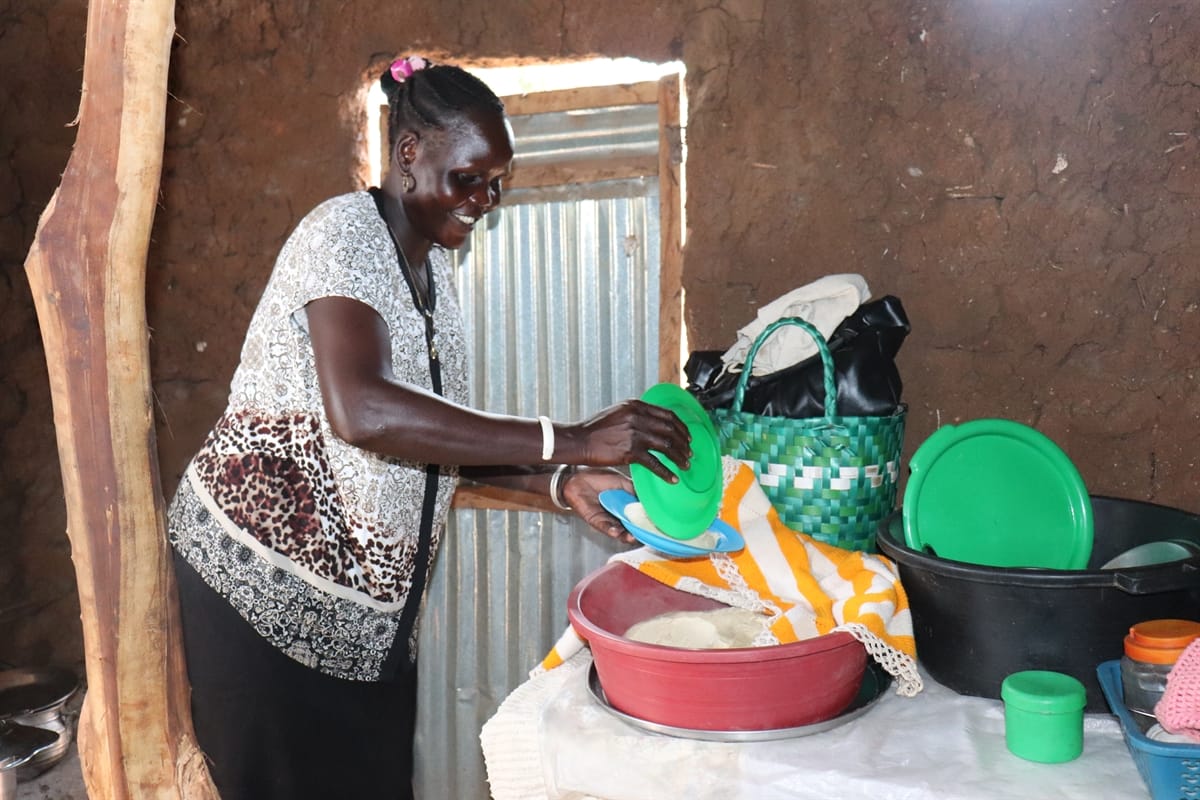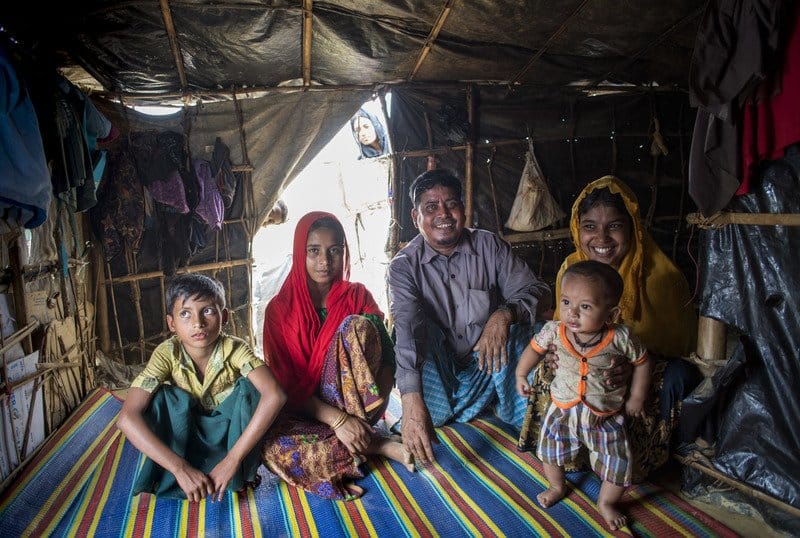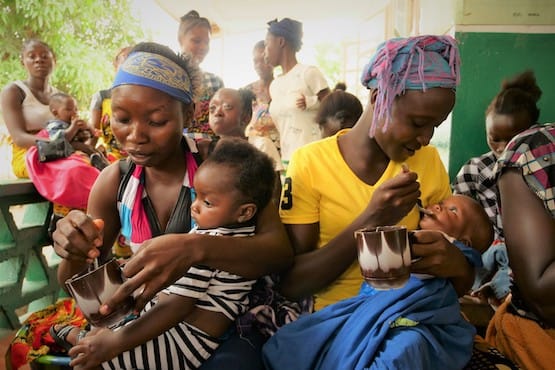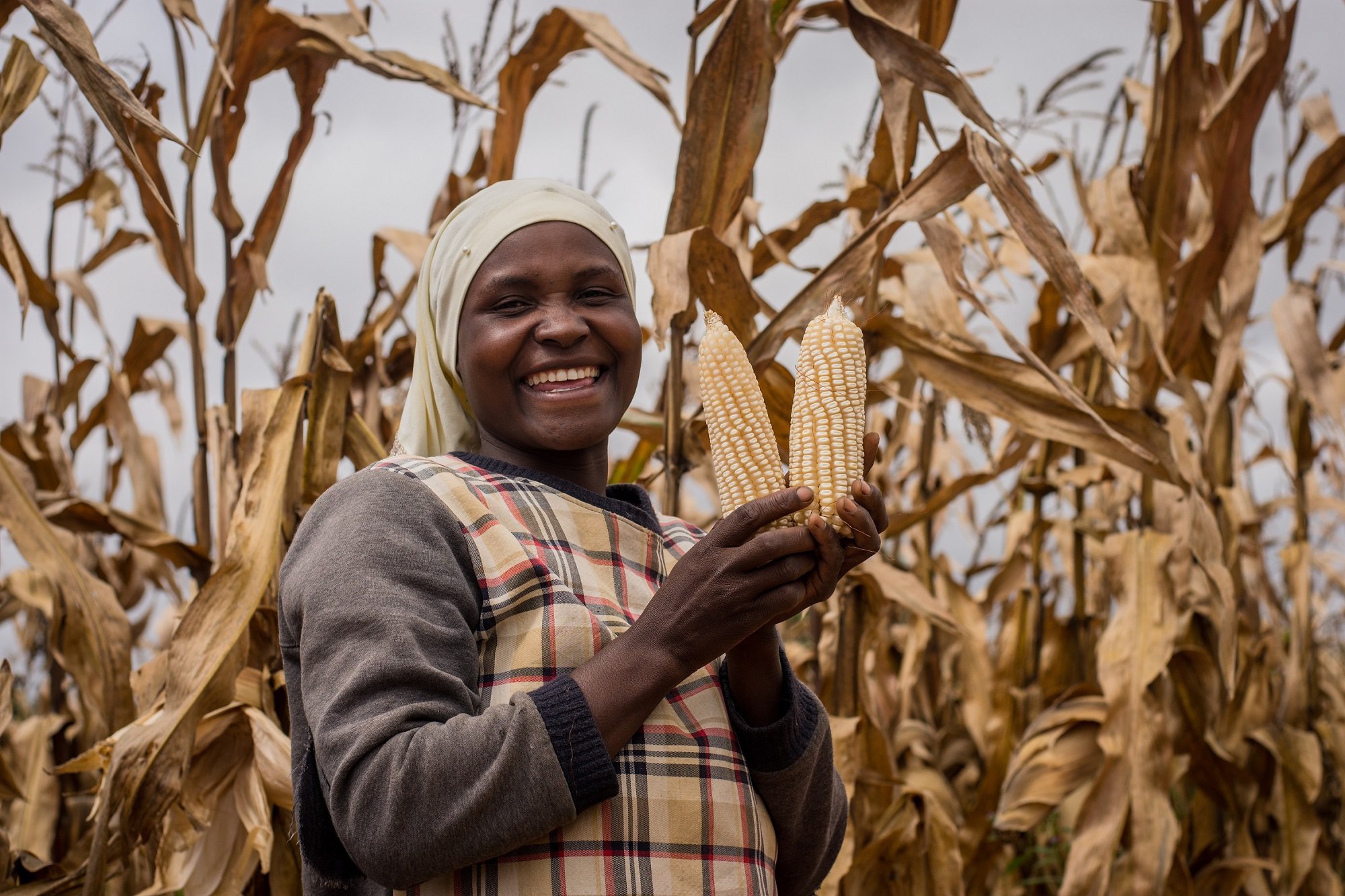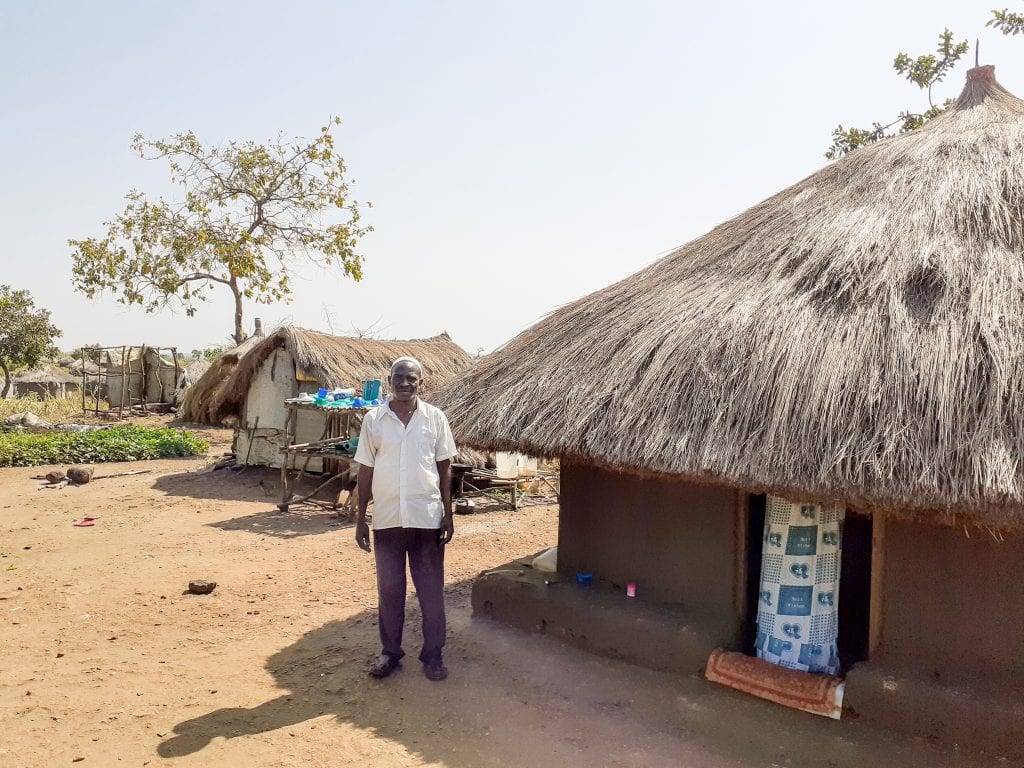Article and photos by Sadie Rose Zavgren, Village Enterprise
In 2018, Village Enterprise partnered with Mercy Corps Uganda on a project funded by the ECHO Foundation to adapt Village Enterprise’s microenterprise Graduation program for refugees. The pilot paired newly arrived refugees with host community members to launch small businesses. This promotes resilience and reduced aid reliance across three refugee settlements in West Nile, Uganda: Bidi Bidi, Rhino Camp, and Palorinya. The pilot consortium also includes CARE, Save the Children, and Oxfam.
The pilot launched 105 businesses and reached 315 refugee and host community households. Based on the success of that pilot, we recently entered into a new partnership in the refugee settlements as part of the ReHope BRIDGE (Resilient Market Systems Development) project run by Mercy Corps and funded by the UK Department of International Development (DFID). In the current project, Village Enterprise is targeting 420 households and starting 140 group-based businesses, with both refugees and their host communities. We are also providing support to DFID Innovations Centers by facilitating the Human Centered Design (HCD) approach to improve project outcomes. The program now has the added feature of hiring entrepreneurial refugees within each settlement to serve as business mentors. This offers participants guidance from business-savvy peers who applied real-life experience to their training and coaching and served as role models whom participants were eager to learn from.
For more on Village Enterprise’s use of Human Centered Design to improve our program for refugees, you can check out this blog post by Hannah McCandless: Using Human Centered Design to adapt Graduation for refugees
Lily Peter: Rhino Refugee Camp, Uganda

Lily and one of her partners cooking for their restaurant
“I had no sense of purpose,” Lily Peter said. Lily lives in the Rhino Refugee Settlement in Northern Uganda. She is one of the more than 1.5 million South Sudanese who have fled their war-torn homeland for the safety of Uganda. Every day she woke up and made porridge for her five children along with three orphans she cared for, collected firewood for the stove, and then waited for the day to end. Like most refugees in the camps, Lily’s family depended on the beans and corn that the United Nations distributed once a month to keep her family from starving. But finding the funds to send the children to school, or to treat them when they fell ill, was impossible.
The feeling of hopelessness began to dissipate when Lily and two partners received the opportunity to start a business with the help of Village Enterprise. Lily, Jane, and Asuku opened a restaurant, using their initial grant to rent space and cookware and to buy the ingredients needed to make the food. In just a few weeks, their business began to grow.
Now when you enter Lily, Jane, and Asuku’s restaurant, the smell of caramelized onions and simmering beans fills the space with a welcoming aroma. Lily and her partners use their profits to buy vegetables for a more balanced diet and to pay for their children’s school fees. They are also saving money to build a larger restaurant. “I feel proud to see people eating our food,” Lily confessed proudly. “We want to run a good restaurant. Eventually, we’ll open a larger one…. Now when we wake up, we have hope.”
Samson Baboya and Anna Likuso

Samson and Anna have started a soap business with help from Village Enterprise’s Graduation program
Samson Baboya adds a few drops of fragrance to a large orange bucket of freshly combined soap. He takes a long wooden stick and begins mixing the liquid until large, white bubbles form. He hands the stick to Anna Likuso, one of his business partners, and she calmly stirs the concoction. The two work harmoniously side by side inside of their thatched hut in Bidi Bidi Refugee Camp in northern Uganda. “Before this business, we had nothing to do,” Samson explains as he kneels next to the orange bucket where Anna is mixing.
For five years, the Civil War in South Sudan has created division and unimaginable destruction. Entire villages have been destroyed. Children have been left malnourished, uneducated, and at risk of abuse. Due to the ongoing conflict in South Sudan, more than one million people have fled to Uganda for refuge. This statistic includes Samson and Anna.
Before fleeing to Uganda, Samson worked as a First Aid respondent with the Red Cross. He helped people who were injured, but as the war intensified, he realized it was time to escape South Sudan while it was still possible. But once he and his three children settled in the refugee camp, it was evident that there was nothing to do. There was no way to make money. “You just wait for the next day,” Anna said.
Samson and Anna’s life changed when they were selected to join the Village Enterprise program. They finally had a way to earn a living and something to preoccupy theirs minds. Samson felt as though he had something to live for again.
Together, Anna and Samson started a soap making business after noticing a demand within their community. The Office of the United Nations High Commissioner for Refugees (UNHCR) stopped bringing soap to the settlements, which created a need. They make the blue dish washing soap, package it into recycled water bottles, and then sell it within the refugee settlement. Anna and Samson’s lives have changed in a tangible way: they are now able to afford meat, greens, and fish, which is helping them feel healthier and stronger.
You can read more about Village Enterprise here, and support their work here.
